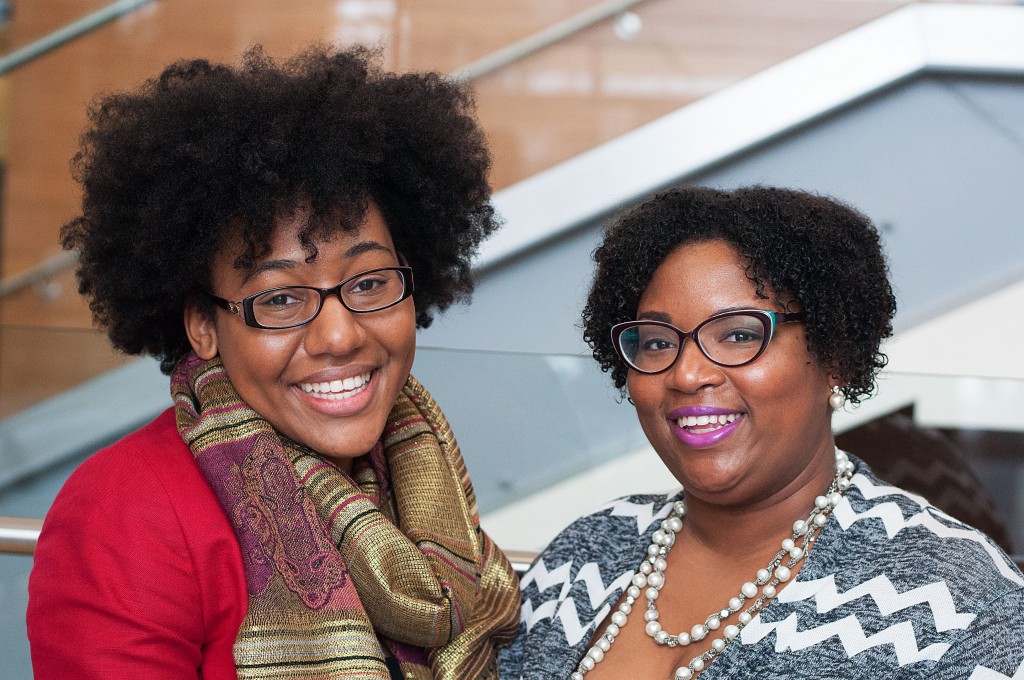
Anreka Gordon and Tanyah Barnes, two fellows at the Division of Diversity, Equity and Inclusion (DEI), are working hard to give minorities a voice on campus. Both are working with students, staff and faculty to create a welcoming campus community to people of all social, cultural and political affiliations.
Barnes came to Binghamton University in 2009 as a residence hall director for College-in-the-Woods and Mountainview College. Upon hearing about the fellowship with the DEI, Barnes decided to apply in the 2013-2014 school year.
“I thought this would allow me to continue to learn but also contribute and get a different level of knowledge than I had gained before,” Barnes said. “I thought it was a unique position.”
Gordon graduated from BU in 2013 with a bachelor’s in business administration and earned her master’s in public administration from BU in 2014. Since August 2014, the two-year fellowship rotates Gordon through different departments within the Division of Operations, such as human resources and physical facilities, and learns how those departments work and how to better foster diversity and equity; one of these initiatives is a push to hire international employees in the financial aid office.
Barnes works with multiple divisions within the University. One of Barnes’ projects included the implementation of the “I am UDiversity” campaign, which is an outlet for students to share their stories of diversity at BU with a poster dedicated to them and their unique traits and accomplishments. She worked with interns from President Harvey Stenger’s Road Map team to create and develop the posters, which are around campus.
Barnes has also worked on the redevelopment of hiring procedures at BU. According to Barnes, undergraduate students’ demands for changes, like more faculty of color, require more work than meets the eye. Simply hiring a more diverse faculty isn’t that simple; there need to be positions for the new faculty.
Barnes says the fellowship has allowed her to better understand the politics and legislation at the local, university and federal level that affect hiring policies, such as laws that prevent employers from asking questions regarding sexual orientation or creating quotas for how many faculty members of color they hire. It’s her job to figure out how to work around these regulations.
“We can’t create quotas,” Barnes said. “There are questions we can’t ask.”
Gordon said the student body is more diverse than the faculty body, and she wants to create an atmosphere that is more reflective of the students.
“When I came in and started working, that’s when I saw the disparity, and I saw the need of why this fellowship was created,” Gordon said.
But Gordon said she applauds the University’s strides in creating a more diverse campus community, which is evident in the creation of the fellowship and their job descriptions. She said she feels lucky to be a part of that change.
According to Barnes, the DEI seeks to create more equal hiring of men and women, religious denominations and physical abilities.
“Some of what we’re doing is trying to figure out how to make a space safe during the hiring process without bias,” Barnes said. “We have to think broadly about what we do and how it meets everyone’s needs and how it makes a safe environment for everyone.”
Gordon and Barnes will complete their fellowships this coming August. While Gordon is certain she will go on to work in the Division of Operations, Barnes is unsure of where she will be placed after the fellowship. However, both are pleased to be in a position to learn and contribute at the same time.


